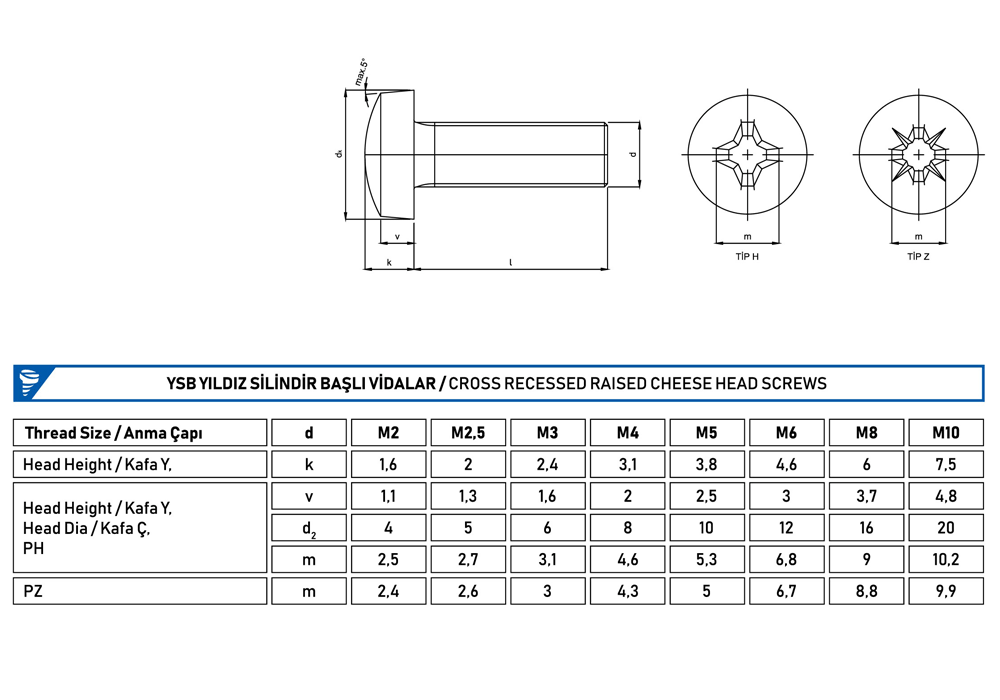









Metric screw is a type of screw with a 60-degree thread angle, defined by thread pitch and diameter in millimeters, used to fasten plastic, wood, and metal materials together.
Metric screws are among the most important elements of the assembly industry. The construction, automotive, machinery manufacturing, electronic device, and furniture manufacturing sectors are among the most frequently used sectors. Metric screw varieties produced from high-quality and stainless metal provide great support to people, especially with their usage advantages. Their ability to withstand high torque and tensile forces has given them a wider range of applications, and their easy availability has garnered demand from every sector.


Best Metric Screws for Your Projects: A Comprehensive Guide
What Are Metric Screws?
Metric screws are fasteners measured using the metric system, commonly used in machinery, automotive, and construction industries. Unlike imperial screws, metric screws are sized based on diameter, pitch, and length, making them more precise for engineering applications. They are widely used in Europe and other regions that follow the metric measurement standard.
Common Types of Metric Screws
There are various types of metric screws designed for specific applications. Some of the most popular types include:
Metric Machine Screws: Used in machinery and equipment, often with fine threading for secure fastening.
Metric Hex Screws: Feature a hexagonal head, ideal for high-torque applications.
Metric Socket Screws: Require an Allen wrench for installation and are used in applications requiring high strength.
Metric Self-Tapping Screws: Designed to create their own threads in materials like plastic, metal, or wood.
Metric Wood Screws: Specifically designed for fastening wood materials with high grip strength.
Each of these screw types is available in different materials such as stainless steel, brass, and carbon steel, depending on the application requirements.
Choosing the Right Metric Screws
Selecting the correct metric screws depends on several factors, including:
Material Compatibility: Ensure the screw material matches the material being fastened to prevent corrosion or weakening.
Thread Type: Fine-thread screws provide stronger holding power, while coarse-thread screws offer better resistance to stripping.
Length and Diameter: The right size ensures secure fastening without damaging the material.
Head Type: Choose between flat, round, hex, or pan heads based on the application and required torque.
By considering these factors, you can ensure that the metric screws you select provide durability and reliability for your project.
Where to Buy Metric Screws at the Best Prices
Metric screws are available at hardware stores, online marketplaces, and specialty fastener suppliers. To find the best screw prices, compare different retailers and manufacturers. Buying in bulk often results in cost savings, especially for industrial applications. Some of the top places to buy metric screws include:
Online marketplaces like Amazon, eBay, and industrial supply websites.
Local hardware stores that carry various metric fasteners.
Manufacturer websites offering high-quality metric screws directly from the source.
Before purchasing, check the screw specifications, materials, and customer reviews to ensure quality.
Benefits of Using Metric Screws
There are several advantages to using metric screws in your projects:
Standardized Sizing: Metric screws follow international standards, making replacements easier.
Precision Engineering: Fine-thread options provide a more secure fit for mechanical applications.
Wide Availability: Commonly used worldwide, ensuring easy sourcing and compatibility.
Corrosion Resistance: Stainless steel and coated metric screws offer excellent durability in harsh environments.
Using metric screws ensures efficiency, reliability, and long-lasting performance for various applications, from DIY projects to industrial manufacturing.